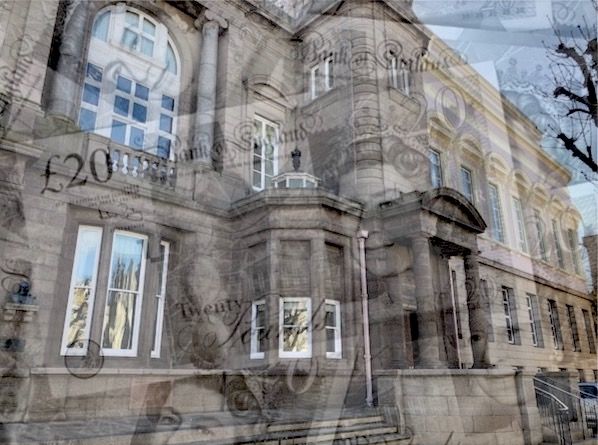

A “doting” mother who accused her dying millionaire ex-partner of leaving their children living in squalor while he enjoyed “palatial” conditions, and using his financial grip over her to extort sex, has been awarded £2.5million for a new home in the Royal Court.
Family Division Registrar Judy Marie O’Sullivan made the decision in April following a months-long legal battle that the father allegedly sought to frustrate by failing to produce key documents, denying legal help, giving “contradictory” evidence, and demanding his children be DNA tested halfway through the court proceedings.
The Court heard that the mother and father – referred to as ‘E’ and ‘F’ to protect their children’s anonymity – came to Jersey five years ago for tax purposes. They separated in 2014, but both parties remained in the island to look after their three children. Since then, the mother had lived separately with the children. Speaking little English, she did not have a job and relied solely on the father for financial support.
Following an intervention by the Children’s Service, the father, whose assets and property portfolio together totalled over £20million, gave her £350 per week. But this sum was unable to meet the family’s full needs.
Moreover, when more money was needed, the Registrar found that he had severely restricted her financial autonomy and even practiced ‘sextortion’- in one instance withholding money for heating oil in the winter months. He argued, however, that this was because she had been “extravagant with fuel and he could not believe she had got through so much fuel.” He was also found to be “disparaging” about the mother, arguing that she “could not be trusted to pay bills.”
“It is clear the Father likes to be in control of finances. The Mother says that not only does he manipulate her but he demands sexual favours in return for money… she states that last year he would not continue to provide any extra money or clothes unless she performed sexual favours for him. Having heard from both, I find that the Father did use his financial hold over the Mother for sex,” the Registrar noted in her recently-published judgement.
The mother said her difficult financial situation meant she had been forced to buy clothing and furniture for the family home from charity shops, “negotiating free delivery when the shop was delivering to other homes”. She had also needed to “save up” for many months for a car – a “15 year old, small hatchback… in a poor state of repair”, which was found to be unsuitable to safely transport the children and their belongings for extra-curricular school activities, such as sport.
She also contested that the payments did not meet the children’s medical and dental fees, and left no money for them to visit their grandparents, half-sister and cousins from her home country with whom they had only communicated via Skype.
Her biggest contention, however, related to the 1970s property – formerly a “derelict bungalow” – she lived in with her children. It was one of very few larger rental properties for islanders who were not residents. It only had three bedrooms, meaning that the mother and youngest child had to share a room, with “paint peeling in virtually all of the rooms.” It was also suggested that it did not meet today’s health and safety regulations. Its state left the children “embarrassed” to invite friends over, having only done so twice since 2012.
Meanwhile, the father’s five-bedroom home was found to be “palatial” in comparison. He would not allow an estate agent to value it internally, but a drive-by valuation placed it around £1.5million.
He later suggested that he would be willing to pay the landlady up to £40,000 on it to “bring it up to palatial standards” – including installing a kitchen from Germany – but nonetheless conceded that the bungalow was “not a good place for children later in life.”
The Court heard how the father was suffering from an incurable illness. He suggested that the mother and children could occupy his home upon his death, and also said that he would set up a trust in his children’s name. But the Court was later told that he was now taking a “wonder drug”, which he felt could extend his life by up to 15 years and had therefore ceased setting one up, as “there is no need to throw things into a panic.” He declined to produce documents relating to the trust, as well as a copy of his will.
“His concern was that once there is a trust he will lose financial control. The Mother is concerned however that he may die sooner than he thinks,” the Registrar mused.
Throughout, the father maintained that he provided sound financial support to his children, who he had seen little of since Christmas, by paying for their school fees, Sky TV, computer and holidays among other expenses, which amounted to 81.5% of his income after tax. He said he was “proud” of this.
Following the case’s conclusion mediation between the parties was suggested for the future, but he said that he did not want to pay the fees, having "congratulated" himself on saving around £30,000 by representing himself in Court. “This from a man with assets of over £12,500,000,” the Registrar remarked.
Passing judgement, she awarded the mother £2.5million towards the cost of purchasing a new home for her children and £97,000 in stamp duty, as well as £2,000 for home furnishings and £10,000 for a new car.
He was also ordered to pay the mother’s £45,000 legal bills in fighting the case.
Comments
Comments on this story express the views of the commentator only, not Bailiwick Publishing. We are unable to guarantee the accuracy of any of those comments.